Water & Industry
Multi-Parameter
Photometric Analysers 2025

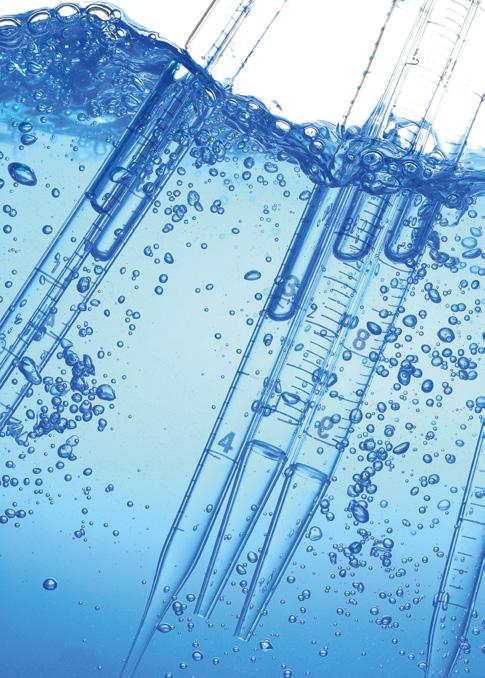
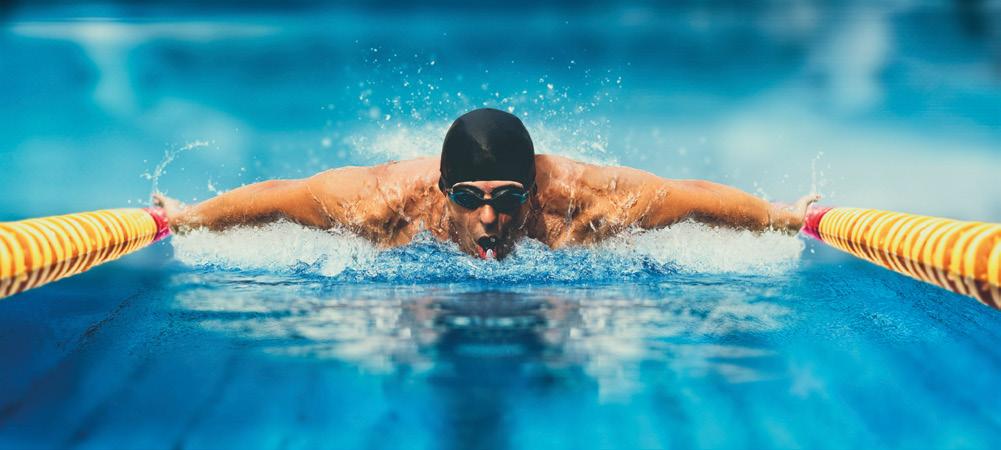
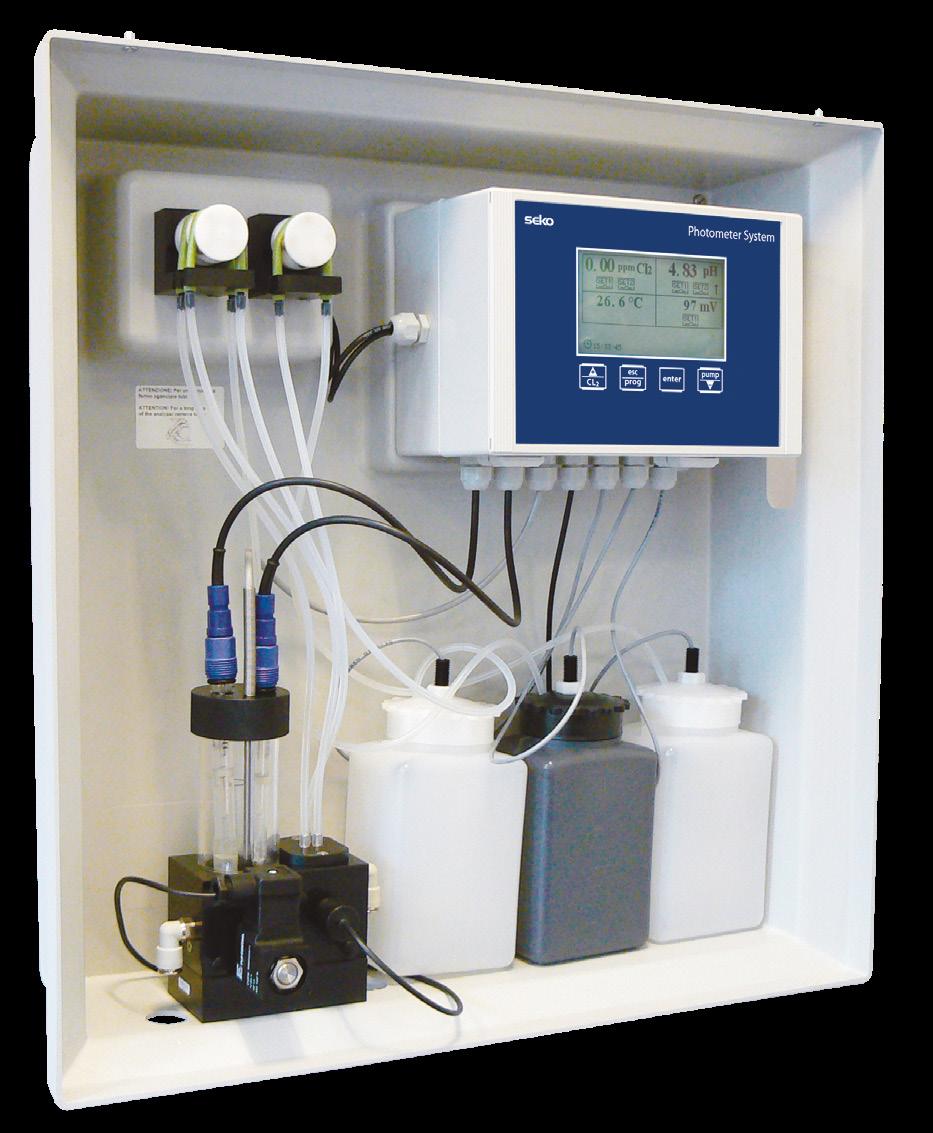
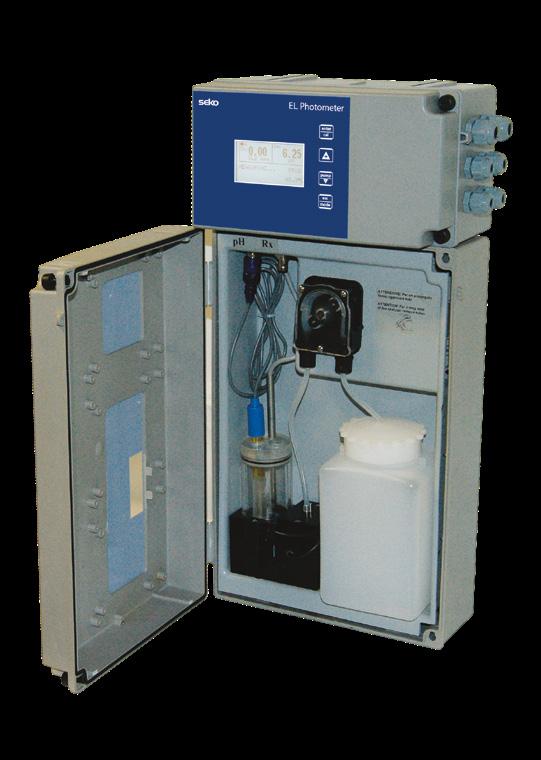

Water & Industry
Multi-Parameter
Photometric Analysers 2025





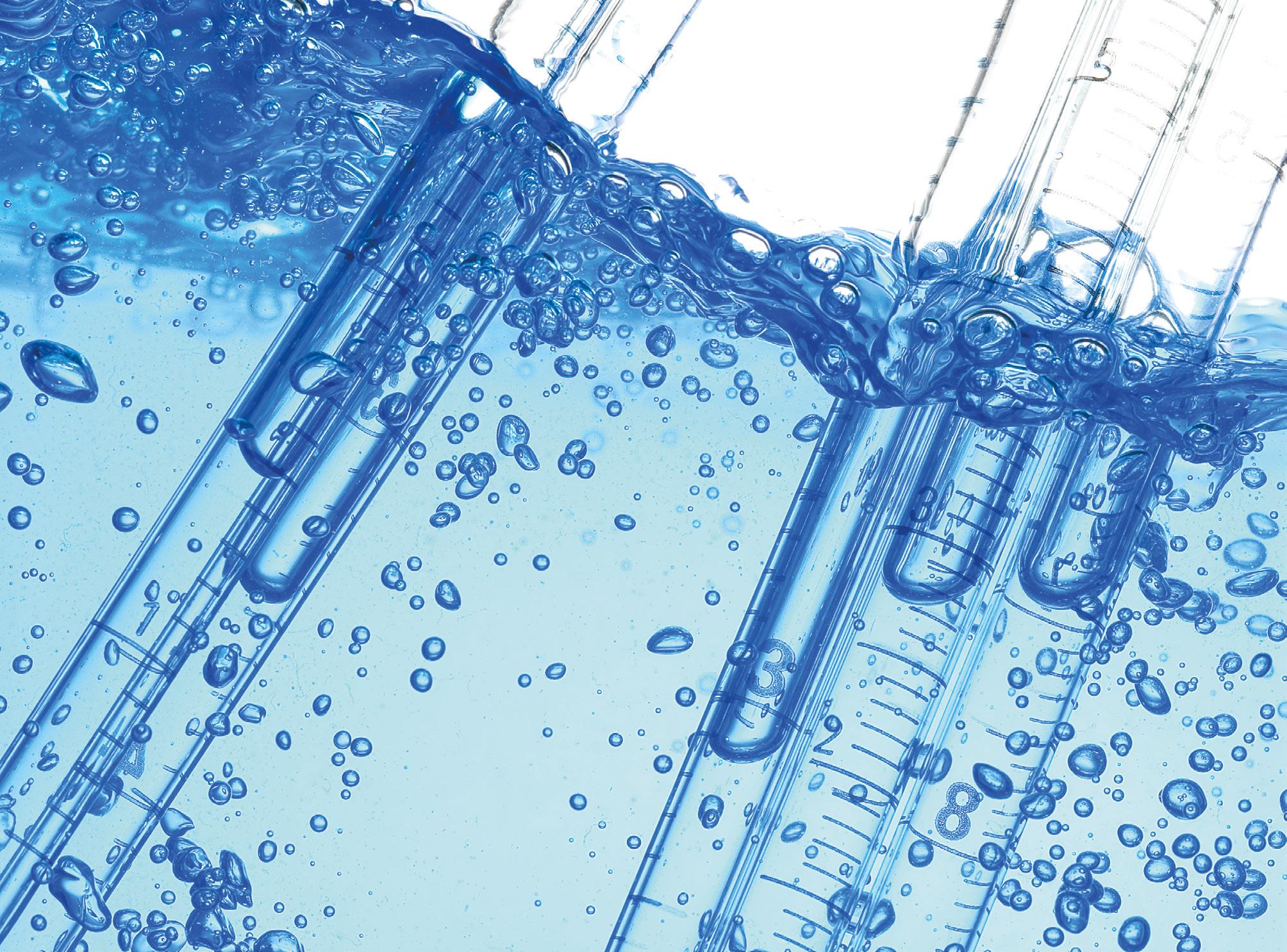


• SEKO multi-parametric devices provide real-time measurement of free chlorine with the photometric method; moreover, they provide pH, ORP and temperature values with exceptional measurement precision.

• The systems are equipped with a divided graphic display that enables simultaneous display of all available measures. In addition to a photometric camera for high-precision chlorine measurement, features also include an integrated datalogger and an RS485 serial port on which a standard Modbus RTU / ASCII protocol is installed.
Photometric measurement, or photometry, is a technique that can be used to measure the concentration of organic or inorganic compounds in solution, determining the absorbance of specific wavelengths of light

• Photometry instruments are used for water quality analysis; they allow end users to develop a chemical profile of the sample being analysed rather than simply detecting a chemical compound.
• Most of the organic and inorganic compounds present in water are colourless and undetectable to the human eye. Photometry instruments introduce chemical reagents and a light source capable of making these otherwise invisible compounds visible.















Photometers are designed to measure the concentration of multiple types of ions and are therefore equipped with filters capable of isolating certain wavelengths of light. By exploiting different wavelengths, photometers therefore work in a very similar way to colourimeters. Test samples are combined with certain reagents; subsequently, some wavelengths of light are passed through the sample under test where part of the light is absorbed, depending on the ions present and their concentration. In conclusion, the light that can pass through the solution is measured by a photocell which allows an exact concentration measurement. This is because the amount of light absorbed by each substance dissolved in solution is directly proportional to the concentration of the sample.

Available in powder, liquid and tablet form, DPD is a reagent used to measure chlorine, ozone or bromine present in swimming pools and other water-treatment applications. All forms of DPD react with water containing chlorine, colouring the sample in various shades of pink: the deeper the colour, the greater the concentration of sanitiser.
The DPD method, like other colourimetric analysers, measures the intensity of the colours produced by the reaction between the reagents with the disinfectants present in the water. The “manual” colourimetric techniques allow the user to translate the intensity of the sample colour into concentration values by visually comparing it with reference tables. However, photometers provide more accurate readings as they can digitally analyse the colour of the sample and generate precise concentration values by referencing the calibration data stored in the instrument’s memory.
four-parameter control instrument combined with a sampler for chlorine measurement
The SEKO Photometer EL is a reference instrument for checking and measuring chlorine and is based on sampling with the photometric method (DPD). Real-time measurement of parameters ensures maximum accuracy from this miniature analysis laboratory, suitable for drinking water, basket washing, chlorine dioxide stations, swimming pools, anti-legionella disinfection, boilers and irrigation.
Available measures
Free chlorine, pH, ORP and temperature.
Interface and display
An interface consisting of a four-button keypad and 128 x 64-pixel backlit LCD graphic display clearly provides the status of the device, the parameters under control and the sampling status.
DPD pump
Reagent consumption is optimised courtesy of a two-roller peristaltic pump, with 3 x 5 mm silicone tube, which delivers exactly 0.07cc of reagent at each dosage. In this way 1 litre of DPD is sufficient for 48 days assuming a sampling time of 5 minutes.
functionality

Photometer EL is equipped with a circular (F.I.F.O.) or filling data-logger, with an internal 4Mbit flash memory, equal to 16,000 records, with a recording interval from 1 to 99 minutes. It has an RS485 serial port, on which a standard Modbus RTU / ASCII protocol is installed, which can be used to connect the device to a local SEKO hub to by managed via the internet through the SekoWeb portal. It also has a digital input that allows dosages to be disabled.
Available measures
Measure Range
pH
ORP
Chlorine (*)
Temperature
0 – 14 pH
± 1,500 mV
0 – 5 ppm
0 – 50°C
Nominal accuracy
± 0.01 pH
± 1 mV
± 0.01 ppm
± 0.1°C
(*) Free chlorine, in photometric chamber, with DPD method, with pH between 6.2 and 8.2 for swimming pool applications.
The SEKO Photometer System offers professional parameter setting and proportional dosage
Models available
Single parameter for free chlorine for total chlorine
Multi parameter for free chlorine and pH for free chlorine, pH and ORP for pH, ORP and free, total & combined chlorine
The SEKO Photometer System is a professional instrument for measuring chlorine, based on sampling with the photometric method (DPD). Real-time measurement of parameters ensures the highest accuracy in professional watertreatment applications.
The Photometer System allows users to monitor up to six parameters: three parameters with the photometric sampling method and three parameters using external probes.
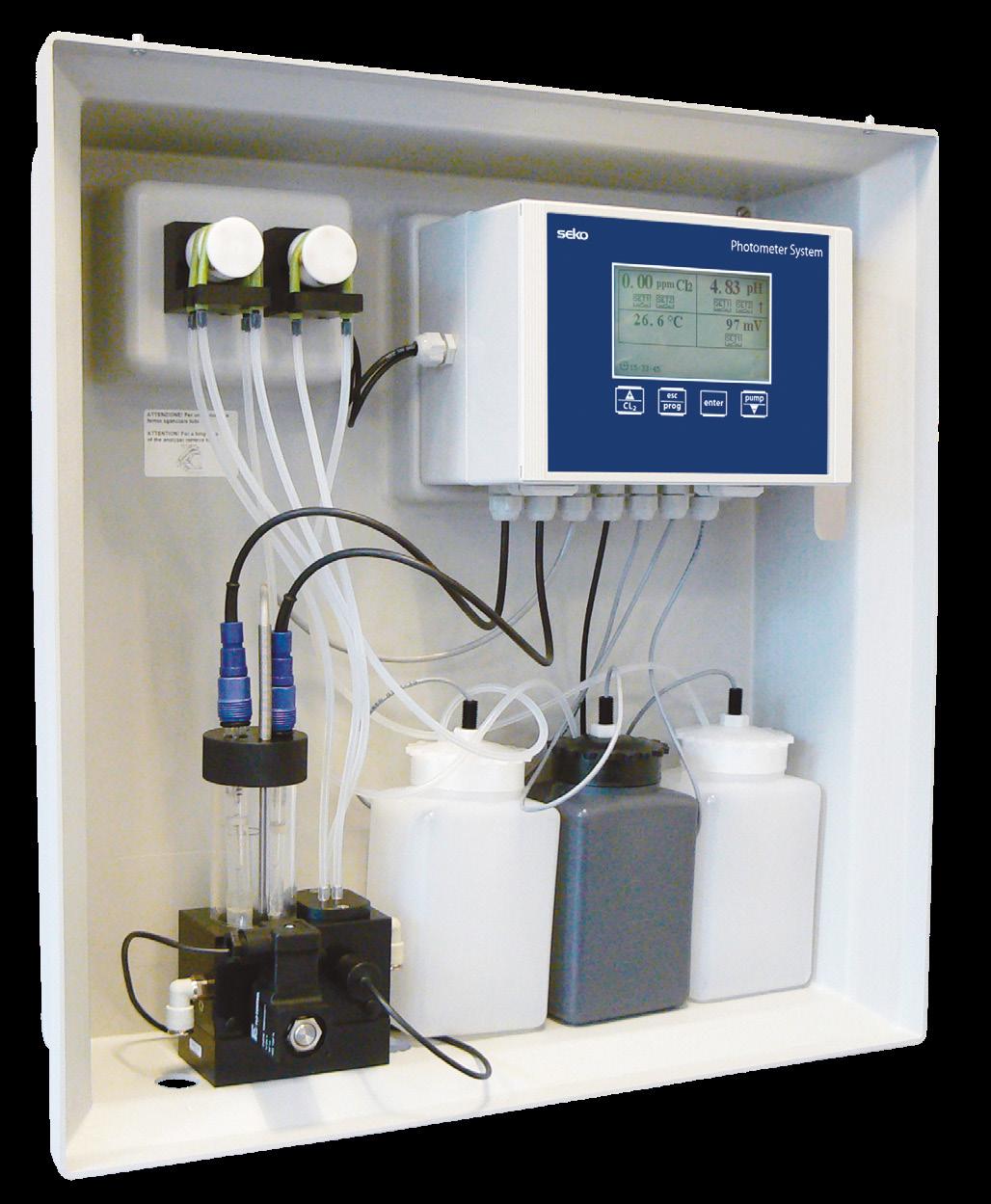

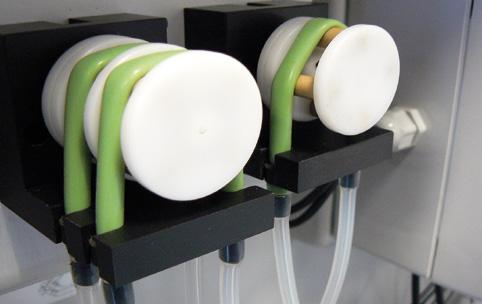

The instrument interface consists of a four-button keypad 128x64-pixel backlit LCD graphic display that displays device status, parameters under control and sampling status.
The consumption of reagents is optimised thanks to the use of two fourroller peristaltic pumps with 3 x 5 mm silicone tubing, delivering exactly 0.15cc of reagent during each dosage. This means that 1 litre of DPD is sufficient for 24 days assuming a sampling period of 5 minutes.
Level probes continuously monitor the presence of the reagents; the DPD reagent is supplied in powder form and must be diluted before use: an excellent solution for safely storing the product anywhere.
Applications
The Photometer System is used in many sectors for industrial applications including the analysis of potable water and wastewater along with food, pharmaceutical and chemical products.
Sample entry into the measuring cell for washing / priming.
First measurement of the sample (Photometric zero).
Addition of reagent by peristaltic pump.
Development of the reaction by stirring.
New sample measurement: following the absorbance, this new reading will be different from the previous one and the differential measurement between the photometric zero and this new acquisition is processed by the electronic processor and converted into a concentration value, using specific correlation tables developed in our laboratories.
The instrument displays the concentration of the substance in mg/l and determines whether or not to activate the dosing devices provided in the system to correct it. Activation can be programmed proportionally to reduce the dosage as the measurement approaches the set threshold.
The operating and maintenance costs are very low as the calibration of the system is performed automatically at each measurement cycle.
Software functions
Data-logger with circular (F.I.F.O.) or filling structure, with 4 Mbit internal flash memory, equal to 16,000 records, with recording interval from 1 to 99 minutes.
The Photometer System has an RS485 serial port, on which a standard Modbus RTU / ASCII protocol is installed, which can be used to connect the device to a local SEKO hub in order to manage it via the internet through the SekoWeb portal. The digital input allows you to disable the dosages.
Measure Range
pH
ORP
Chlorine (*)
Temperature
0 – 14 pH
± 1,500 mV
0 – 5 ppm
0 – 50°C
Nominal
± 0.01 pH
± 1 mV
± 0.01 ppm
± 0.1°C
(*) Free chlorine, total or combined, in photometric chamber, with DPD method, with pH between 0 and 14 pH

The photometric measuring cell is made of PVC, plexiglass and glass. It includes an electronic board with RS485 interface used to communicate with the control instrument, and guarantees a high-precision chlorine measurement with optimal performance, thanks to a 520 nm sensor and LED light.
The system then has a gravity drain for clean or polluted water, a probe holder for pH, ORP, temperature and flow probes. The cell is designed to manage a hydraulic power supply of 60 l/h, at a maximum pressure of 1 bar.
Twenty-three national SEKO companies across six continents means that, wherever you are, you enjoy the same exceptional level of service as every SEKO customer around the world.
And an accredited partner distributor network allows us to provide local customer support in over 120 countries, so you benefit from region-specific knowledge and rapid delivery of goods as well as worldclass after-sales service and technical assistance.
For everyone from buyers and engineers to end users, SEKO Hub is the ultimate all-encompassing platform that brings you to the heart of SEKO and gives you what you need when you need it.
Bringing together essential documents such as manuals, case studies, data sheets and brochures as well as tutorial videos, favourite products, an appointment booking system and so much more, SEKO Hub is a central personalised platform to revolutionise the way you work.
SEKO Hub is available online or via app, so you’re never without it whether you’re at work, at home or on the move. It’s your home for the complete SEKO experience, so join SEKO Hub and make our world a part of yours.